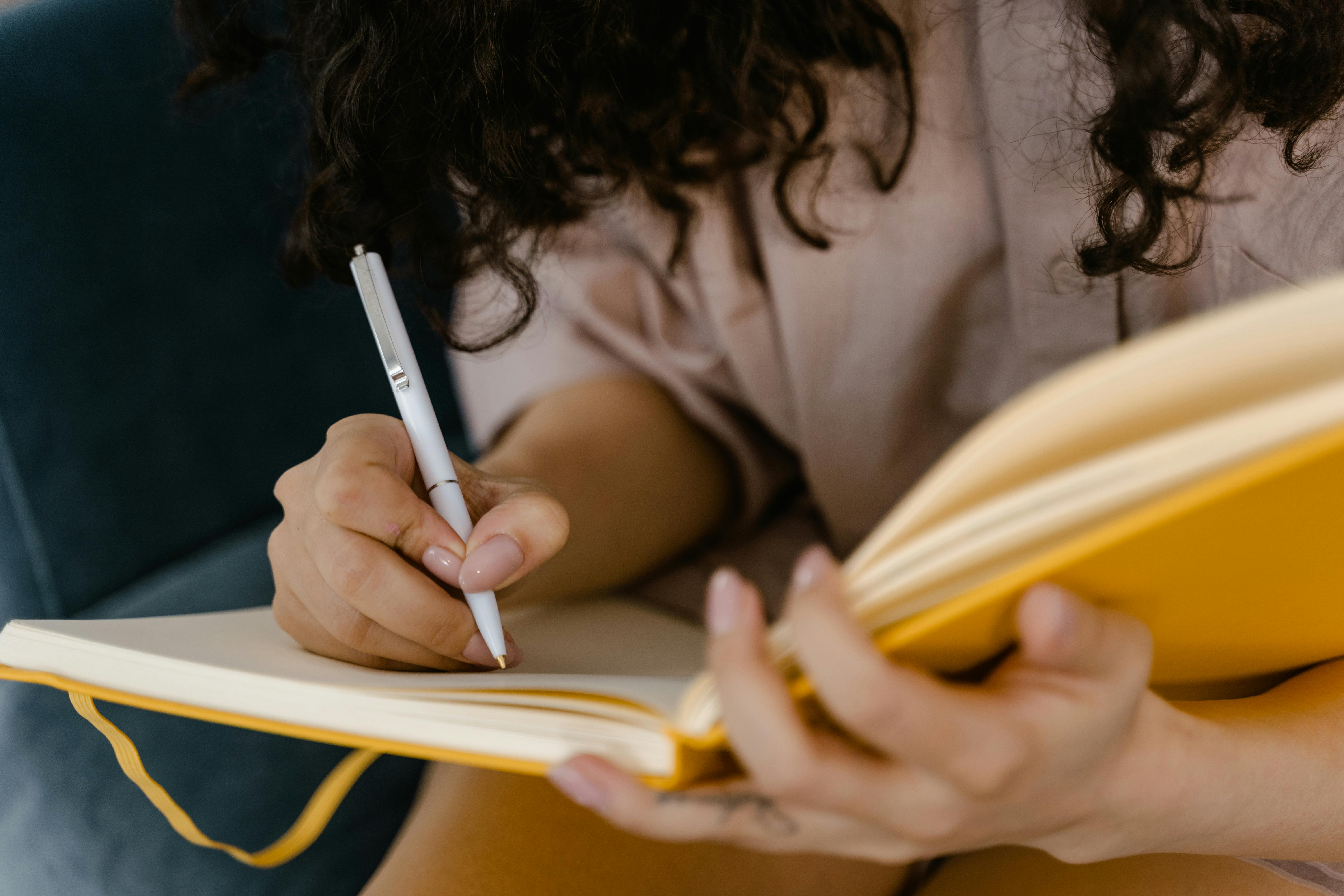Memory Mastery: The Top Brain Tricks for Remembering Anything
The human brain, a marvel of evolution, is capable of incredible feats of memory and learning. Yet, many of us struggle to retain information effectively. That's why we've expanded our list of surprising mental pathways that can help you effortlessly retain everything you encounter. These pathways are rooted in cognitive science, psychology, and educational theory, offering practical strategies to enhance memory retention. As we journey through these methods, you'll discover how interconnected they are, each building upon the last to create a comprehensive framework for memory mastery. Let's delve into these pathways and unlock the full potential of your mind.
1. The Power of Visualization

Visualization is a powerful tool for memory retention. By creating vivid mental images, you can transform abstract information into concrete, memorable visuals. This technique leverages the brain's natural preference for images over text, making it easier to recall details. For instance, when trying to remember a list of items, visualize each item interacting in a bizarre or humorous way. This creates a mental 'story' that is far more memorable than a simple list. Visualization not only aids in memory retention but also enhances creativity and problem-solving skills, providing a robust foundation for learning.
2. The Method of Loci

The Method of Loci, also known as the memory palace technique, is an ancient mnemonic device that anchors information to specific locations within an imagined space. By associating each piece of information with a location in a familiar setting, you create a mental map that is easy to navigate. This technique exploits the brain's spatial memory, which is particularly strong, to enhance recall. It's especially useful for memorizing sequences, such as speeches or historical timelines. The Method of Loci demonstrates how spatial awareness can be harnessed to improve cognitive retention.
3. Chunking Information

Chunking is a strategy that involves breaking down large amounts of information into smaller, more manageable units. This method is based on the brain's limited capacity to hold information in short-term memory, typically around seven items. By organizing information into chunks, you create a structured framework that is easier to remember. For example, a long string of numbers can be chunked into groups, like phone numbers. This technique is not only effective for memorizing data but also for understanding complex concepts, as it encourages the brain to find patterns and relationships.
4. Emotional Engagement

Emotions play a crucial role in memory retention. Information that is emotionally charged is more likely to be remembered than neutral data. This is because emotional experiences activate the amygdala, a brain region involved in emotional processing, which enhances the consolidation of memories. To leverage this, try to connect the information you want to remember with an emotional experience or response. Whether it's through storytelling, personal relevance, or humor, engaging your emotions can significantly boost your ability to recall information.
5. The Spacing Effect

The spacing effect is a phenomenon where information is more easily recalled when study sessions are spaced out over time, rather than crammed into a single session. This technique capitalizes on the brain's natural forgetting curve, which suggests that spaced repetition allows for better long-term retention. By revisiting information at intervals, you reinforce neural connections, making the memory more robust. This approach is particularly effective for learning languages, as it allows for gradual accumulation of vocabulary and grammar rules.
6. Interleaved Practice

Interleaved practice involves mixing different topics or skills during study sessions, rather than focusing on one subject at a time. This approach forces the brain to continuously adapt and retrieve different types of information, leading to better retention. Interleaving helps to prevent the mind from becoming complacent and encourages deeper cognitive processing. Studies have shown that this method improves problem-solving skills and enhances the ability to transfer learned concepts to new situations, making it a versatile tool for lifelong learning.
7. Retrieval Practice

Retrieval practice is the act of recalling information from memory, rather than simply reviewing it. This technique strengthens memory by reinforcing neural pathways, making it easier to access the information in the future. Testing yourself on the material, whether through flashcards, quizzes, or teaching others, is an effective way to implement retrieval practice. This method not only boosts retention but also helps identify gaps in knowledge, allowing you to focus on areas that need improvement. Retrieval practice is a proactive approach to learning that transforms passive review into active engagement.
8. Dual Coding Theory

Dual coding theory posits that combining verbal and visual information enhances memory retention. By presenting information in both formats, you create multiple pathways for retrieval, increasing the likelihood of recall. For instance, when learning a new concept, create a diagram or mind map alongside written notes. This dual approach leverages the brain's ability to process visual and verbal information simultaneously, leading to a more comprehensive understanding. Dual coding is particularly effective for subjects that involve complex relationships, such as science or history.
9. The Role of Sleep

Sleep is essential for memory consolidation, the process by which short-term memories are transformed into long-term ones. During sleep, the brain reorganizes and strengthens neural connections, making it a critical component of effective learning. Prioritizing quality sleep enhances cognitive function, attention, and problem-solving abilities. To optimize memory retention, ensure you get enough restful sleep, especially after learning new information. Incorporating naps into your routine can also be beneficial, as they provide additional opportunities for memory consolidation.
10. Mindfulness and Focus

Mindfulness, the practice of being present and fully engaged in the moment, can significantly enhance memory retention. By reducing distractions and improving focus, mindfulness allows for deeper processing of information. Techniques such as meditation, deep breathing, and mindful observation help cultivate a state of awareness that is conducive to learning. Mindfulness not only improves attention but also reduces stress, which can negatively impact memory. By incorporating mindfulness into your study routine, you create an optimal environment for cognitive retention.
11. The Impact of Nutrition

Nutrition plays a vital role in brain health and memory retention. A balanced diet rich in omega-3 fatty acids, antioxidants, and vitamins supports cognitive function and enhances the brain's ability to process and store information. Foods such as fatty fish, nuts, berries, and leafy greens are particularly beneficial for memory. Staying hydrated is also crucial, as dehydration can impair concentration and cognitive performance. By fueling your body with the right nutrients, you provide the foundation for optimal brain function and memory retention.
12. The Influence of Social Interaction

Social interaction can significantly impact memory retention. Engaging in discussions, debates, and collaborative learning activities stimulates cognitive processes and encourages deeper understanding. Teaching others is an especially effective way to reinforce your knowledge, as it requires you to organize and articulate information clearly. Social interaction also provides opportunities for feedback and diverse perspectives, enhancing your ability to retain and apply information. By incorporating social elements into your learning routine, you create a dynamic and supportive environment for memory retention.
13. The Magic of Music

Music has a profound effect on memory and learning. Listening to music can enhance concentration, reduce stress, and create a positive emotional state conducive to retention. Certain types of music, such as classical or instrumental, are particularly effective for studying, as they provide a soothing background that helps maintain focus. Additionally, setting information to music or rhythm, like mnemonics or songs, can aid in memorization. The brain's natural affinity for patterns and melodies makes music a powerful tool for enhancing memory retention.
14. The Feynman Technique: Learn by Teaching

The best way to know if you truly understand something is to try and teach it to someone else. This is the core of the Feynman Technique. Named after Nobel Prize-winning physicist Richard Feynman, this method involves four steps: first, choose a concept and study it. Next, try to explain it in simple terms to a person who knows nothing about the subject. When you inevitably get stuck, go back and re-learn the information until you can explain it clearly. Finally, simplify your explanation and use an analogy to make it even clearer. This process forces you to identify gaps in your own knowledge and strengthens your understanding by forcing you to create new, more robust mental models.
15. The Zeigarnik Effect: The Power of Interruption

The human brain has a strange and powerful tendency to remember uncompleted tasks better than completed ones. This psychological phenomenon is known as the Zeigarnik Effect. You can use this to your advantage by intentionally taking a short break from your studies at a critical point—right before you’ve fully mastered a concept or finished a chapter. This creates a state of mild cognitive tension, making the unfinished information stick in your mind until you return to it. By strategically interrupting your learning, you engage your brain’s natural bias for incomplete loops, making the material far more memorable and compelling.
16. The Mind-Body Connection: Kinesthetic Learning

Many of us learn best not just by seeing or hearing, but by doing. Kinesthetic learning, or the mind-body connection, leverages the brain’s sensorimotor circuits to create powerful memory cues. For example, when you learn about the digestive system, you can use hand gestures to mimic the path of food. When studying a historical battle, you could physically draw out the troop movements. By associating information with specific movements or physical actions, you create a new and unique memory pathway that engages multiple senses. This makes the information more deeply encoded and much easier to retrieve when you need it.
17. The Priming Effect: Memory’s Subconscious Catalyst

Your brain is constantly on the lookout for patterns and connections, and you can exploit this with the Priming Effect. Priming involves exposing yourself to specific stimuli (words, images, concepts) just before you learn new, related information. For example, before reading a chapter on ancient Rome, you could listen to a documentary soundtrack or briefly look at images of Roman architecture. These subtle, seemingly unrelated cues unconsciously activate relevant neural networks, making the brain more receptive to the new material. This quiet preparation helps new information "stick" better and allows you to make connections you might have otherwise missed.
18. Self-Explanation: The Internal Dialogue

Simply reading or listening isn’t enough for deep learning. Self-explanation is the process of talking through a concept with yourself, either out loud or in your head. As you read new material, stop periodically and ask yourself, “Why is this true?” or “How does this relate to what I already know?” This simple act forces you to actively synthesize new information and connect it to your existing knowledge base. It’s a form of metacognition that makes you an active participant in your own learning, transforming a passive intake of information into a conscious process of analysis, critique, and integration.
19. The Forgetting Is Good Principle

Forgetting feels like a failure, but it's actually a crucial part of how your memory works. The Forgetting Is Good Principle suggests that the very act of forgetting something—and then successfully recalling it later—deepens the memory. When you struggle to remember and then succeed, your brain reinforces the neural pathways for that information, making it more resilient. This is why spaced repetition works so well; you're allowing the memory to fade just enough for the retrieval effort to be effective. Embracing this principle transforms the frustration of forgetting into a powerful tool for memory mastery.
20. The Role of Context

Your brain links information to the environment in which it was learned. This is the context-dependent memory principle. To use it to your advantage, try to study in a similar environment to where you'll be tested. Even a small change, like studying in a new location or with a different background noise, can trigger a different memory pathway. By taking your study materials on a walk or reviewing them in a café, you create multiple, redundant retrieval cues. The more contexts you associate with the information, the easier it is to recall.
21. Neurobics: Brain Gymnastics

Just as physical exercise strengthens your body, neurobics—or brain aerobics—challenges your mind with sensory novelty. This involves performing simple, everyday tasks in new and unexpected ways. For example, try brushing your teeth with your non-dominant hand or navigating your home in the dark (safely, of course). These activities force your brain to forge new neural connections and activate underused pathways. By regularly interrupting your routines with these minor sensory challenges, you can improve cognitive flexibility, enhance your spatial awareness, and keep your mind sharp and adaptable.
22. The Power of Synesthesia

Synesthesia is a unique neurological condition where one sense is perceived as another (e.g., seeing sounds as colors). You can harness a similar technique to create powerful memory associations. For example, assign a specific color to each number you need to remember, or a distinct smell to a historical figure. When trying to remember a concept, intentionally give it a unique sound, texture, or taste. This creative process engages multiple senses at once, forging a complex neural network that is far more resilient than a single-sense memory. It’s a great way to turn abstract information into a rich, multi-sensory experience.
23. The Practice of Metacognition

Metacognition is simply "thinking about your thinking." It’s the habit of consciously monitoring and reflecting on your own learning process. When you're studying, ask yourself questions like, "Do I truly understand this?" or "What parts are still confusing?" This deliberate self-reflection helps you identify gaps in your knowledge and choose the most effective learning strategies. By practicing metacognition, you transform from a passive learner into an active one, gaining a deeper understanding of how your own mind works. This higher-level thinking is a powerful tool for self-improvement and long-term memory mastery.
24. The Serial Position Effect Bypass (Harnessing Primacy/Recency)

The Serial Position Effect states that you remember the first (Primacy) and last (Recency) items in a list better than the middle. You can bypass this weakness by intentionally breaking lists into smaller, distinct sub-groups of 5-7 items (using chunking). Treat each sub-group as its own mini-list, giving the first and last items in that smaller set a bold visual cue (e.g., highlighting them). This trick allows you to apply the natural strengths of Primacy and Recency to every piece of information, not just the beginning and end of the entire study session.
25. The Memory Transition Ritual (State-Dependent Change)

Your mind associates memories with your physiological and mental state. To create stronger, more distinct memory batches, develop a brief physical ritual to perform before and after each new learning session. This could be anything from a specific 60-second stretching routine, changing music genres, or even drinking a glass of water while standing in a certain spot. This small, intentional "state change" acts as a powerful contextual marker, isolating the information in your memory. When you perform the ritual again, your brain is instantly primed to retrieve that specific session's knowledge.
26. The Emotional Exaggeration Technique (Valence Shift)

While you mention emotional engagement, you can actively optimize it using Emotional Exaggeration. When studying neutral information (like a date or a formula), deliberately assign it an absurdly positive or negative emotional story to heighten its valence. For instance, imagine a dry history date as the date of the greatest personal tragedy or the most hilarious victory you can conceive. Extreme emotional tags, even fabricated ones, trigger the amygdala to mark the information as critically important, boosting memory consolidation and making the item impossible to ignore during later retrieval.
27. Sensory Deprivation & Focused Recall

To truly test the strength of a memory and force deep retrieval, intentionally remove competing sensory input. After studying a difficult concept, go to a quiet, dark place (like a closet or under a heavy blanket) and attempt to recall the information. Removing sight and sound forces the brain to rely solely on the internal neural pathways you built during learning. If you can retrieve the information successfully in this "deprived" state, the memory is strongly consolidated. This intense, isolated retrieval practice creates highly resilient memory traces resistant to distraction.
28. The PQRST Method (Preview, Question, Read, Summary, Test)

This structured reading comprehension strategy is a complete pathway for integrating new information. First, Preview the material (headings, pictures, captions). Second, formulate Questions based on the headings. Third, Read the text actively, seeking answers to your questions. Fourth, Summarize the main points immediately afterward without looking at the text. Finally, Test yourself on the content. This method ensures that learning is never passive, forcing deep engagement, structuring the material, and immediately applying retrieval practice to secure the information in long-term memory.
29. Analogy Generation: The Conceptual Bridge

The human mind learns best by relating new information to what it already understands. Analogy Generation involves forcing yourself to create a simple, relatable comparison between a complex new concept and a familiar everyday object or process. For example, explaining how a computer processes information by comparing it to a kitchen (input, processing, output). This technique forces the synthesis of new and old knowledge, building a conceptual bridge that makes the new idea instantly meaningful and deeply integrated into your existing mental framework. If you can create a simple analogy, you own the concept.
30. Testing in "Confusion": The Dual-Task Retrieval

Retrieval practice is powerful, but testing under slight interference enhances resilience. This method, often used in athletic training, involves adding a low-level, non-related cognitive task while attempting to recall complex information. Try to recite key terms while simultaneously counting backward from 100 by threes, or while softly juggling small, non-distracting objects. This forces your brain to retrieve the target information despite active interference, strengthening the memory trace against real-world distractions and demonstrating a more robust, "usable" level of mastery.
31. The Question-Answer Chain (The Socratic Loop)

Instead of simply outlining concepts, build a Question-Answer Chain that links sequential pieces of information. Start with one fact, then create a question whose answer is the next logical fact, and so on. This turns dry material into a narrative structure driven by curiosity. For example: "Who invented the lightbulb? (Answer: Edison.) Why did Edison need to perfect the filament? (Answer: To create long-lasting light.) What compound did he use? (Answer: Carbonized bamboo)." This looping structure forces sequential retrieval and strengthens logical connections far better than isolated facts.
32. Sensory Substitution (Breaking Visual Dominance)

Most learning relies too heavily on visual input. Sensory Substitution involves intentionally translating visual information into a non-visual sense to create an alternate memory pathway. For example, when memorizing a diagram, try tracing the lines with your finger while simultaneously describing the shape aloud, or closing your eyes and mentally "hearing" the steps of a process. This intentional act of breaking visual dominance engages the parietal and temporal lobes, forcing deeper encoding and making the information retrievable even if the original visual cue is forgotten.
33. Opposite Encoding: The Contrast Principle

The brain finds contrasts easier to remember than similarities. The Opposite Encoding method involves forcing yourself to briefly articulate the opposite of the concept you are trying to learn. When studying the function of a positive mechanism (e.g., blood pressure raising hormones), immediately ask yourself: "What would happen if this hormone did the exact opposite?" Or, when learning a historical victory, briefly outline the opposing side's failure. This intentional mental pivot creates a sharp, well-defined contrast that highlights the defining characteristics of the core information, making it more salient and distinct in memory.
Integrating Pathways for Mastery

The mental pathways explored in this article offer a comprehensive approach to memory retention, each contributing a unique strategy to enhance learning. By integrating these pathways into your daily routine, you create a multifaceted framework that supports cognitive function and memory mastery. Whether through visualization, emotional engagement, or social interaction, these techniques tap into the brain's natural abilities, making it easier to retain and recall information. As you experiment with these methods, you'll discover the transformative power of the mind and unlock new levels of learning potential.
